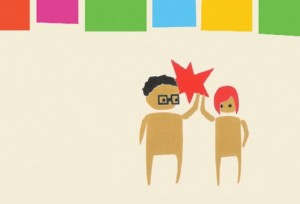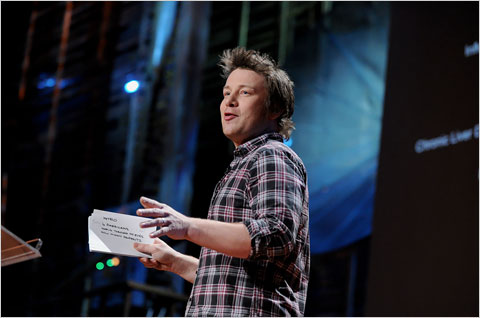Turning Ideas into Impact
/I recently came across this great TED talk by Steven Johnson, a technology, science and innovation author who focuses on the question of where good ideas come from. Steven Johnson on TED
Over the course of 20 minutes, Johnson discusses open innovation as a vehicle for identifying, nurturing and developing great ideas. Innovation doesn’t happen in a bubble, nor in a flash – instead the best ideas are those that have come from connected individuals who make use of “liquid networks.” “Chance,” he says, “favors the connected mind.”
This topic has been very top-of-mind for me lately, as I dive into the world of open innovation and online collaboration over at OpenIDEO.
As you’ve heard me talk before, OpenIDEO is an open innovation platform where people from all walks of life come together to collaboratively tackle some of our world’s most pressing social and environmental challenges. From improving maternal health using mobile technology to increasing access to sanitation solutions in low-income communities, OpenIDEATORS (as our global community of 17,000+ calls itself) have generated thousands of ideas to improve our world.
It turns out that August marks OpenIDEO’s first anniversary, and while we’re taking a moment to celebrate how far we’ve come, we’re also eagerly looking forward toward what we hope to accomplish in the year ahead.
In some ways you could argue that Steven Johnson’s talk about the genesis of great ideas represents the story of OpenIDEO during Year 1. Through our platform we’ve provided an opportunity for people to connect and for ideas to be shared and built upon. In Year 2, however, we’re hoping to go beyond just being a community of thinkers, and instead figure out ways to become a community of doers.
One common critique of open innovation platforms like OpenIDEO is that impact is slow and difficult to achieve, and it’s something we’ve definitely witnessed over the course of the last 10 challenges we’ve run. The sponsors we work with make a commitment to realizing ideas from each challenge, but achieving and documenting implementation and impact can be slow going due to a number of constraints on resources, time, partnerships and more. Given this, one of our goals for Year 2 is to focus on the kind of impact that isn't always slow; that is, impact via individuals like you and me.
Take our Bone Marrow Donation Challenge, for instance. Ideally, impact in this challenge means actual lives saved through increased bone marrow donation. While this would certainly be an incredible example of impact, it's going to a long time before OpenIDEO and our sponsor have helped connect a bone marrow donor with a cancer patient in need of a transplant. In the meantime, then, we also want to recognize that there are alternative impacts we can strive for in the short term – swabbing a cheek and registering to donate, raising awareness among friends and family, even hosting a bone marrow registration drive, to name a few. The point is: there are many ways to contribute to achieving impact, and many ways to become a doer.
To gear up for a year focused on increasing our impact, OpenIDEO has just launched a new challenge that asks the question: How might we increase social impact with OpenIDEO over the next year?
It’s a question that’s relevant not just for the OpenIDEO community but for the social innovation sector as a whole. What does impact mean on a local and global scale? How can we catalyze people from all over the world to recognize and act on moments of impact? And how might we empower people to open themselves up to the possibility that they can become agents of change? We’re hoping to tackle these questions in this challenge, and I’d love it if you joined the conversation.
Here’s to the start of a brand new year – one filled with new ideas and new impact.



